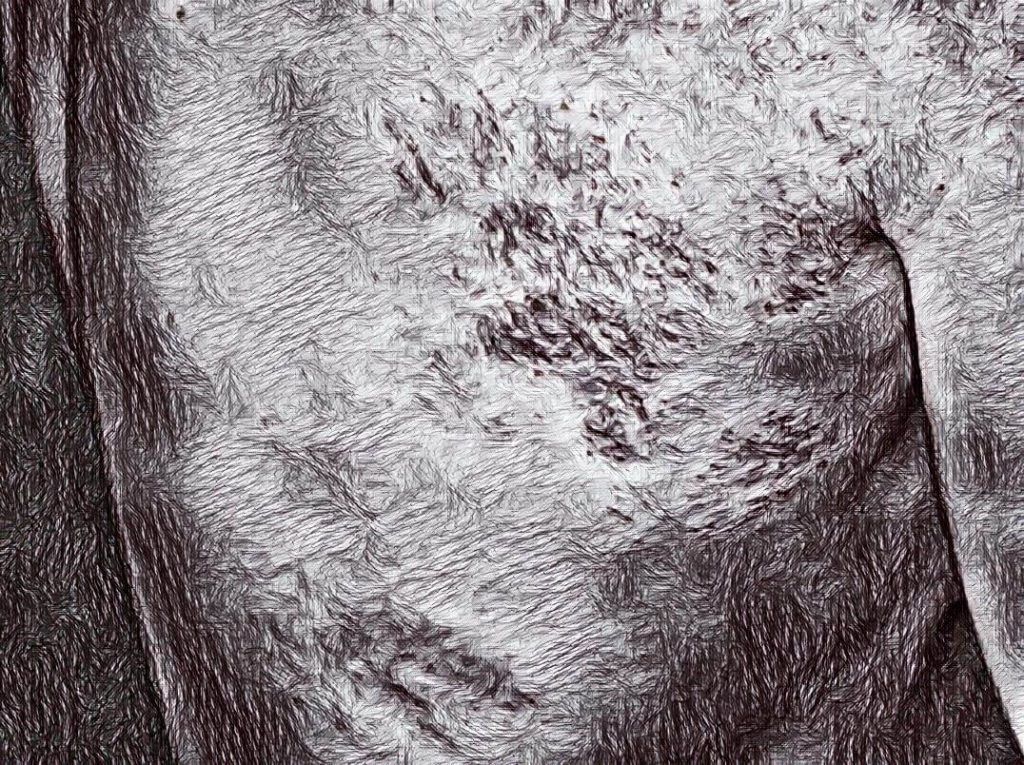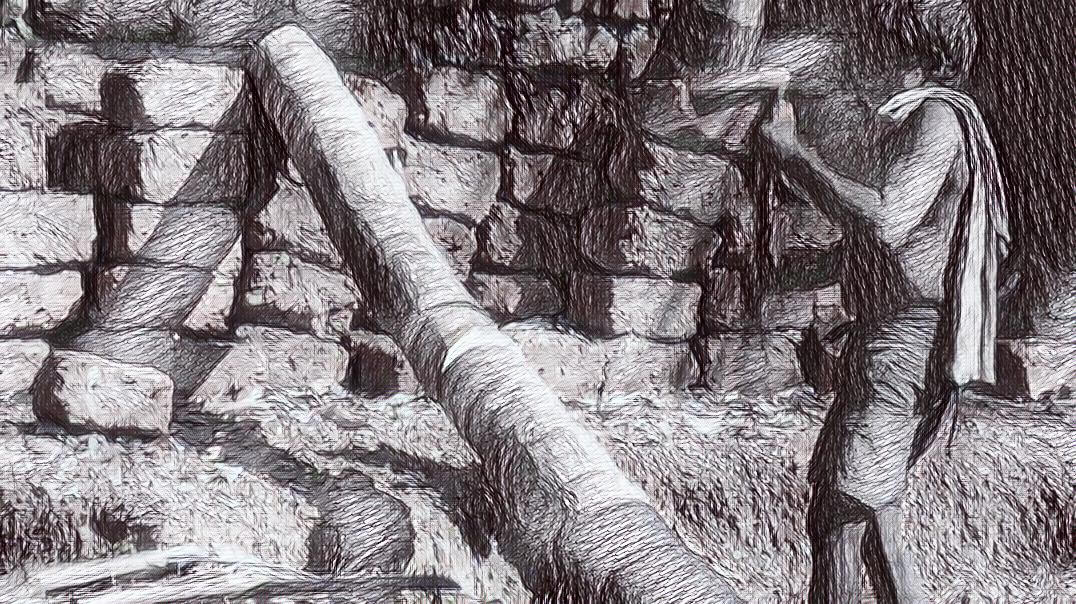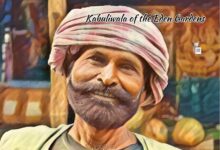Abu unravels the character of a drunk woodcutter and a visitor, who meet at a village shop. An exclusive for Different Truths.
It was early November. The air was cold and yonder the trees looked haunted with long battered, dusty leaves. A shallow river zigzagged with swirling water. It parted the sleepy village from the forest, fenced with electric wires — a step taken by the forest department to save the villagers from the attacks of elephants and other wild beasts.
“Give some chocolates,” I said while chewing betel leaf.
The shopkeeper looked puzzled, but said nothing and offered some. A tiny bulb was hung over his head. The shop boasted of two or three dusty shelves reserved for chocolates, groceries and plastic dolls. The man was bald, nose snub, lips thick and reddish, eyes dull.
The shopkeeper looked puzzled, but said nothing and offered some. A tiny bulb was hung over his head. The shop boasted of two or three dusty shelves reserved for chocolates, groceries and plastic dolls. The man was bald, nose snub, lips thick and reddish, eyes dull.
“Where is your home?” the shopkeeper suspiciously asked, and measured me from head to toe.
And before I moved my lips, his words were snatched by a drunken man who appeared from nowhere. He was middle-aged, short, well built, with hair of a hedgehog; face squared and scarred, lips thick and red with the strain of betel juice. His eyes were small, hands and legs shapely but scabbard and soiled.
“Hey! What’s your business, man, at this evil hour?” the drunken man demanded and whirled round me with his unsteady legs and drooping head.
“What’s your problem, man? You’re not the owner of the village, I suppose. I’ve every right to visit, not at this hour only, but at dead of night too,” bluntly I said and began munching the chocolates nonchalantly.
“What’s your problem, man? You’re not the owner of the village, I suppose. I’ve every right to visit, not at this hour only, but at dead of night too,” bluntly I said and began munching the chocolates nonchalantly.
“Oh! Don’t try to wear the skin of a fox. Why have you come here at this hour?” He repeated throwing his hands to the sky.
He was wild with rage. And I pondered over my next move. The night was dark, the street was empty, and no faces I knew. Besides I knew not much of the ways of this particular village. For the first time, I set feet here. At other villages, I had some known faces but here I’m an alone stranger.
“For timber,” I spat and said.
“What safety (CFT)?”
“Are you a merchant?” I queried.
“The forester is my friend. Reward me and you’ll be rewarded too,” he claimed and his eyes tinkled.
“The forester is my friend. Reward me and you’ll be rewarded too,” he claimed and his eyes tinkled.
“Do you have sheesham?”
“What?” He scratched head. “I had khair, jarul, shimul, nali, pakhisaal, shirish, teak, but sheeshum….” He muttered thoughtfully, fixing eyes to his feet.
“Sissoo,” I clarified.
“Tut! Tut! Plenty I have. From my childhood, I cut sissoo, and my shoulders are scarred carrying it day and night. Pooh….” The man threw his words with derision, and I saw the muscles of his face twitching.
“Give a bottle first,” he pleaded.
“I’m not a bottle maker. And you’re already drunk. Take chocolates rather,” I try to offer some.
“I’m not a bottle maker. And you’re already drunk. Take chocolates rather,” I try to offer some.
“Am I a child? Do you think me a fool?” He stared at me. He unsteadily moved forward and backwards like an elastic thread.
“Okay, then take some home for your children,” I coaxed.
“Why do I take? Are you my sagai (relative)? Eh? Am I too poor to buy chocolates for my children?” He gave me a sidelong, scornful look. He skewed eyes and his words faltered.
I didn’t speak, waited for a while, and made a quest for the clusters of sparkling stars hung low overhead.
An uneasy silence wrapped us. A van loaded with stacks of timber creaked away. A cow mooed, and a child bitterly cried somewhere in the village.

An uneasy silence wrapped us. A van loaded with stacks of timber creaked away. A cow mooed, and a child bitterly cried somewhere in the village.
“A cigarette,” he flung his hand. His rage subsided but still its traces burnt like dying embers.
“I quit years back.”
He glared at me. “Fool! Are you a man? Uh… no bottle, no cigarette,” he spat with a hawkish sound and looked terribly upset.
“ Achcha (Okay), at least make a dose of tanku. I’m perched. You take, I take,” his eyes glistened, and his mouth was watery.
“ Achcha (Okay), at least make a dose of tanku. I’m perched. You take, I take,” his eyes glistened, and his mouth was watery.
“Tanku?” I looked harried.
“Sir, tobacco,” the shopkeeper helped.
The shopkeeper gave him a pouch. He pressed and pressed it with his thumb. A pungent smell overtook me. I coughed and the man laughed. We then sat on a bamboo bench next to the shop. The forest by the other side of the river seemed a pool of darkness.
“How do you live, man?” I took interest in the drunkard.
“I cut trees and sell them at sawmills at Falakata,” happily he said.
“Cutting trees in the reserved forest is a punishable act,” I warned with a civilised tone.
“I never cut trees in the forest. I buy them from the villagers and make some profits by selling at mills. From childhood I’m in this line,” he claimed while putting a pinch of tobacco into his left gum.
“I never cut trees in the forest. I buy them from the villagers and make some profits by selling at mills. From childhood I’m in this line,” he claimed while putting a pinch of tobacco into his left gum.
I sensed his story. So I kept mum.
The night was magical, still and dark. We were sitting at the edge of the murmuring river. And peacocks were the occasional singers.
He began, “My life was hard. Parents were poor. We were four brothers and three sisters. I was the eldest. In infancy, we were tied to wooden poles and remained unfed for days. Parents worked in forest and fields and at day’s end, they cooked the seeds of kadu (a kind of grass). With a lean meal, we somehow filled our stomachs. The food was tasteless, and its smell made us sick. We used to add salt to kadu. When freed, we would collect fruits and honey from the forest. We climbed trees, ate eggs of birds and ants, swung from trees to trees.”
We stomped feet, killed mosquitoes, and heard the peacocks. The shopkeepers sat like a bundle of hays under the hazy bulb. I asked for betel leaves. The keeper offered, counted the coins, and fell sleepy again.
We stomped feet, killed mosquitoes, and heard the peacocks. The shopkeepers sat like a bundle of hays under the hazy bulb. I asked for betel leaves. The keeper offered, counted the coins, and fell sleepy again.

“One day my sister died of a snake bite while catching fish,” he resumed, “I was then quite a grown-up boy. Parents were old and they could hardly labour. How could I bear the burden of the family? So I went to Arunachal to cut trees. I stayed there for six months. There the trees were tall and huge. The place was wild, and the people were not friendly. I sweated from dawn to dusk, seven days a week. My hands were languid, bones crumbled, legs bowed.”
He flung his tattered shirt on the dust and showed me his bruised shoulders. “Touch it,” he cried.
I hesitantly marked the uneven wounds.
“After six months of works two thousand I got. I was cheated. The manager of the company was young, rude, and powerful. He sucked my blood. And the land was unknown. How could I protest? Who would talk for me?”
“Reaching home I heard of father’s death. Mother followed him in heaven a month later. But to fulfil her death-wish I married. After marriage, I looked for work but couldn’t find. Cutting trees was in my blood. Then one day I went to Bhutan and made a lot of money.”
“Reaching home I heard of father’s death. Mother followed him in heaven a month later. But to fulfil her death-wish I married. After marriage, I looked for work but couldn’t find. Cutting trees was in my blood. Then one day I went to Bhutan and made a lot of money.”
“Why did you leave Bhutan?” I asked.
“Money is flying there but I won’t fly” dryly stressed the woodcutter. He hitched up, spat, and again sat down. “I lost my daughter. I don’t want to lose my Munna,” he rued.
A silence followed. The man was etching a sore in his left leg. Surrounding was dim and desolate.
“Where’s the money?” I asked with a curiosity.
He didn’t speak. I asked a cigarette from the shopkeeper. He smoked thoughtfully and nodded head up and down.
“No. Money is not everything!” he broke his silence. “I don’t want to lose Munna’s smiles for a day, even for an hour!”
“No. Money is not everything!” he broke his silence. “I don’t want to lose Munna’s smiles for a day, even for an hour!”
“How do you manage home?” Soberly I put.
“Villagers love me. When they need money for daughter’s marriage or illness, they sell trees. And I never cheat them. Their love and faith is my cash. And you can’t believe when I cut trees, they (trees) weep. My job is to kill whom I love!” he moaned.
I looked around, and the thought of home made me uneasy.
“Do you know why do I drink?” He continued, “I drink to forget my love. She fled with Dhaniram of Madhari, one of my close friends who used to visit us in sun and rain. We talked of timbers, ate together, and planned our future sitting and smoking side by side, and one day when I was away from home, he took her away.”
“And what’s about your Munna?”
“I have an old pisi, (father’s sister). She takes care of him. He is learning rhymes. I’m so happy. One day he will be big, and shine my name in the world!”
“I have an old pisi, (father’s sister). She takes care of him. He is learning rhymes. I’m so happy. One day he will be big, and shine my name in the world!” He raised his head. A slanting ray of light from the shop fell on his rugged cheek.
I was quite late. So I stood up, paid the shopkeeper, bade him adieu. I shook hand with the woodcutter and felt its coarseness.
“Be my guest and visit a poor woodcutter’s hut. It’s not far away,” he invited.
“Another day,” I assured.
“Don’t get scared. I kill trees, not men,” he grinned and plodded, his axe on his shoulder towards, his hut through the scented darkness of the night.
Photo from the Internet





 By
By
 By
By
 By
By
 By
By
It’s not my first time to pay a visit this web page, i am browsing this web site dailly and take
nice facts from here every day.